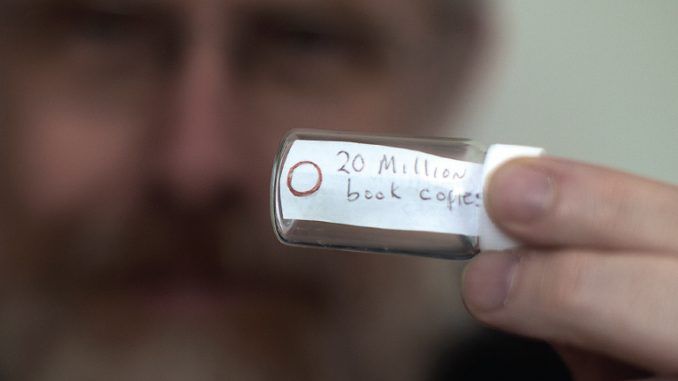
A pioneering new way of data storage means that unlimited quantities of data can be stored in tiny DNA molecules.
The data, stored in the molecules and encapsulated in glass, represents a revolutionary method of data storage.
Robert Grass from the Swiss Federal Institute of Technology (ETH) in Zurich has led the research in storing digital data in DNA using a complex mathematical algorithm.
Algorithms usually used in long-distance radio transmissions were embedded in DNA. The team converted 83 kilobytes of text into DNA.
As iol.co.za reports, Dr Grass said that his team has converted 83 kilobytes of text from the medieval Swiss Federal Charter of 1291 and The Method of Archimedes into the digital code of DNA based on sequences of four chemical building blocks, the nucleotides A, C, T and G.

BYPASS THE CENSORS
Sign up to get unfiltered news delivered straight to your inbox.
You can unsubscribe any time. By subscribing you agree to our Terms of Use
Dr Grass told the American Chemical Society that “A little after the discovery of the double helix architecture of DNA, people figured out that the coding language of nature is very similar to the binary language we use in computers”.
The language used in the DNA molecules to store the data consists of four nucleotides, namely A, C, T, and G.
The DNA molecules were synthesised by machine and heated to 71C for a week, which is equivalent to being stored at 50C for 2 000 years, after which it was decoded back into the original text without any errors, Dr Grass told the meeting.
The method of preservation of the DNA molecules in glass or silica, means that the digital DNA storage solution is capable of surviving hundreds of thousands of years without any loss of integrity. Traditional data storage only lasts a few decades.
As well DNA data being able to last long periods of time, the size of the devices would allow 300,000 terabytes of memory to fit on something the size of the penny.
Palaeontologists have shown the information stored in DNA recovered from fossils can survive for up to a million years.
